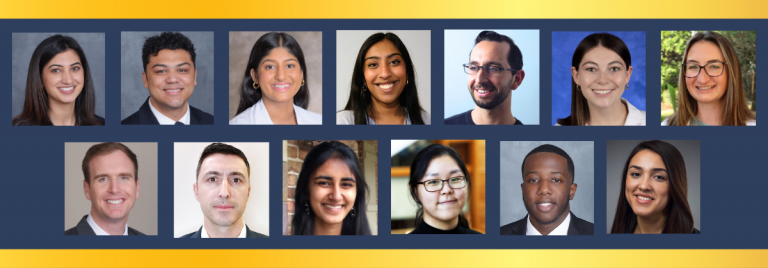Since the beginning of her career, Dr. Haq’s focus on serving disadvantaged populations has led her to volunteer in remote communities around the globe. In 1986, with her family in tow, Dr. Haq volunteered to move to Uganda to become the medical director for the Kasangati Health Center.- her first job as a practicing physician. In later years, she established the first family medicine residency programs in Pakistan and Uganda, worked in refugee camps in Afghanistan and low-income urban areas of Kampala and Karachi, and worked to strengthen medical education in Ethiopia. She also served as a consultant for the World Health Organization in Switzerland.

Dr. Haq with the TRIUMPH class of 2014
Dr. Haq’s list of accolades is long, but her greatest joy lies in mentoring and teaching. While practicing family medicine in Wisconsin and caring for the uninsured and homeless populations of Milwaukee on a volunteer basis, Dr. Haq continued to forge strong bonds with her students. Among many other programs and leadership projects, she launched the Training in Urban Medicine and Public Health (TRIUMPH) program for medical students at the University of Wisconsin. This innovative program gives medical students the opportunity to work intimately with underserved populations and to gain insight into the unique challenges facing these patients, while also teaching students about work-life balance and mindfulness in practice. Dr. Haq collaborates with each of her students within the TRIUMPH program to conduct longitudinal community projects in Milwaukee and participate in focus groups and public health courses.
Dr. Haq’s peers note that her “true golden touch lies in her compassion for others, ability to listen, and the collaborative focus she brings to all aspects of her work.” One particular TRIUMPH student stated, “If I could emulate Cindy Haq on even a miniscule scale I would no doubt feel my life well spent.” Dr. Haq’s ceaseless compassion and dedication makes her an inspiration to all who have the privilege to work with her, and an exceedingly worthy recipient of the 2014 Humanism in Medicine Award.
This post was written by Perry Dinardo.

